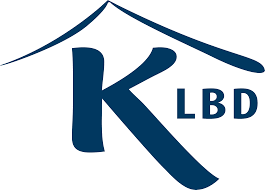Kosher for Passover: Understanding the Special Dietary Regulation
If you live around a majority of Jewish people, every year in the springtime, you may observe grocery stores stocking a lot of matzo, macaroons that are coconut-based, and gefilte fish, all labeled ‘Kosher for Passover.’ For those who are unversed in Jewish traditions, it raises a lot of questions. What is Kosher Passover and why is it a big deal?

Kosher certification is a Jewish food standard that requires a strict separation between meat and dairy and requires all production processes to be free of contamination. However, during such spring times, Judaism observes a week-long fast called the Passover, where they go a step ahead of just Kosher and accommodate even more strict dietary rules.
In this blog post, let’s understand what is Kosher Passover in-depth, why it is celebrated, and what Kosher Passover Certification is.
What is Kosher Passover?
Kosher Passover is an all-week sacrifice of unleavened foods such as bread, liquor, pasta, beer, and more. They avoid all food items made from risen and fermented grain (called chametz by Jewish people). This is a step further from Kosher — Passover guidelines are stricter. Jewish people are forbidden from consuming as well as owning chametz products during this week.
Other than bread, other items made from barley, oats, wheat, rye, and more such grains are also disallowed. If any of these grains can be baked within 18 minutes, it can be considered matzo. This is because of the cultural beliefs of Judaism. Even liquor made from any of the non-Passover grains is prohibited from consumption — only wine is considered permissible.

How to know if a food item is permitted for consumption during Passover?
To mark Kosher and Kosher Passover Certification, various certification agencies are active all around the world to ensure non-contamination of kosher food. All packaged food products have to have “Kosher for Passover” written on them to be considered consumable by Jewish people. Where this is not possible, the letters K and P are encircled to denote their permission for Jewish consumption.
Sometimes, there will be some symbols in Hebrew to communicate the same.
Why Kosher Passover is observed?
The cultural significance of Passover (Pesach in Hebrew) dates back to the time the Israelites were enslaved in ancient Egypt. Passover marks the liberation of these Jews from Egypt — they fled before the bread could rise or leaven — which is why they now avoid all risen and fermented grain during this time.
Every year as per the Hebrew calendar, from the 15th day to the 21st day of the month of Nisan (in March or April as per the Gregorian calendar), Jewish people observe Passover and honor the passing over of firstborn Israelites from harm’s way.
Conclusion
To sum it all up, if you were wondering what is Kosher Passover, it is a Judaic holiday that celebrates the freedom of Israelites from the slavery of Egypt in ancient times by fleeing before the bread could rise. To honor this, Jewish people renounce the consumption of all food products made with yeast. Such products are also certified under the Kosher standard and available in the market during spring.
ABOUT KLBD
KLBD is the largest kosher certification agency in Europe, as well as one of the top five in the world. The KLBD logo is recognised and respected by both manufacturers and consumers worldwide. KLBD certify some 40,000 ingredients and over 3,500 retail products across six continents.
KLBD is an acronym for Kashrut (Kosher) Division of the London Beth Din (Jewish court of law). The organisation is also known as Badatz London. The court is headed by Dayan Menachem Gelley and is under the auspices of the Chief Rabbi. The LBD, a world leading authority on Jewish and Kosher Law, is proud to have been a leading force in kosher certification for more than a century.
KLBD is known for their pragmatic approach to solving the challenges faced in certain complex production environments. The organisation’s expertise includes flavours, aromas, herbal extracts, dairy ingredients, fats and oils, and retail products. Currently, KLBD certifies numerous multi-national food brands, processors and raw material manufacturers and offer an affordable and expert kosher certification service. Leading clients include Arla, DMK, Givaudan, IFF and Treatt. On supermarket shelves recent converts to kosher include Hovis, Marmite, McCain’s and Nescafe Dolce Gusto.
